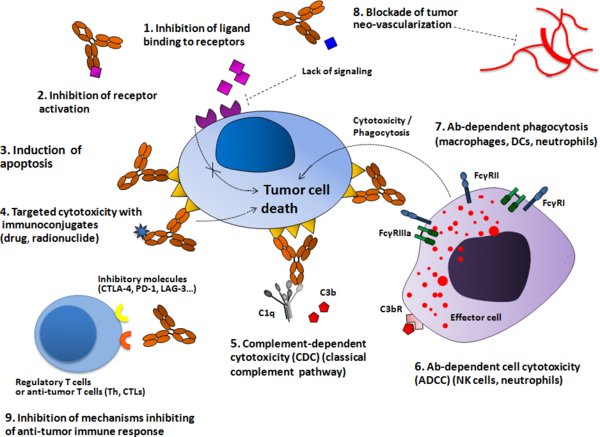Figure 2.

Télécharger l'image originale
Induction of anti-tumor adaptive immunity by monoclonal antibodies. Tumor cells opsonized with antibodies are lysed through various effector mechanisms (Figure 1). Cell debris, apoptotic bodies, and antigen/antibody complexes are then captured by antigen-presenting cells (APCs) such as immature dendritic cells, leading to the activation of CD4+ T cells. Signal dangers are also involved in the sensing of tumor cells by APCs. CD4+ T cells trigger CD8+ cytotoxic T-cell and also likely B-cell activation, leading to the appearance of memory CD4+ and CD8+ T cells and likely memory B cells (not represented). This adaptive immunity opposes inhibitory mechanisms induced by tumor cells and by inflammation that parallels tumor growth. It counterbalances the role of regulatory T cells (Treg) and of immunosuppressive and/or pro-inflammatory cytokines (IL-10, IL-6…). Cross-presentation of tumor-associated antigens by APCs to CD8+ T cells as well as the presence of myeloid-derived suppressor cells (MDSC) such as M2 macrophages are not represented.
Current usage metrics show cumulative count of Article Views (full-text article views including HTML views, PDF and ePub downloads, according to the available data) and Abstracts Views on Vision4Press platform.
Data correspond to usage on the plateform after 2015. The current usage metrics is available 48-96 hours after online publication and is updated daily on week days.
Initial download of the metrics may take a while.




